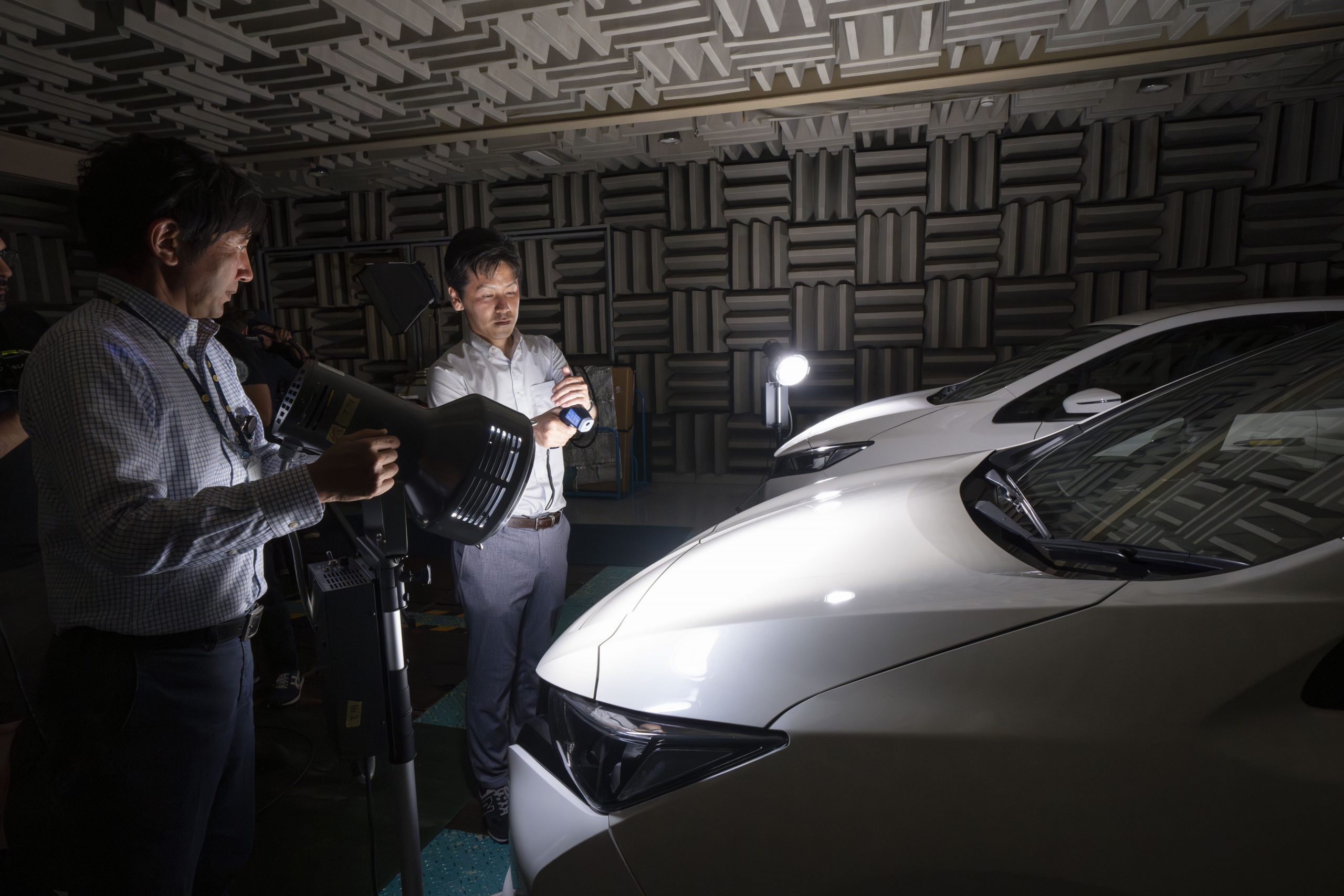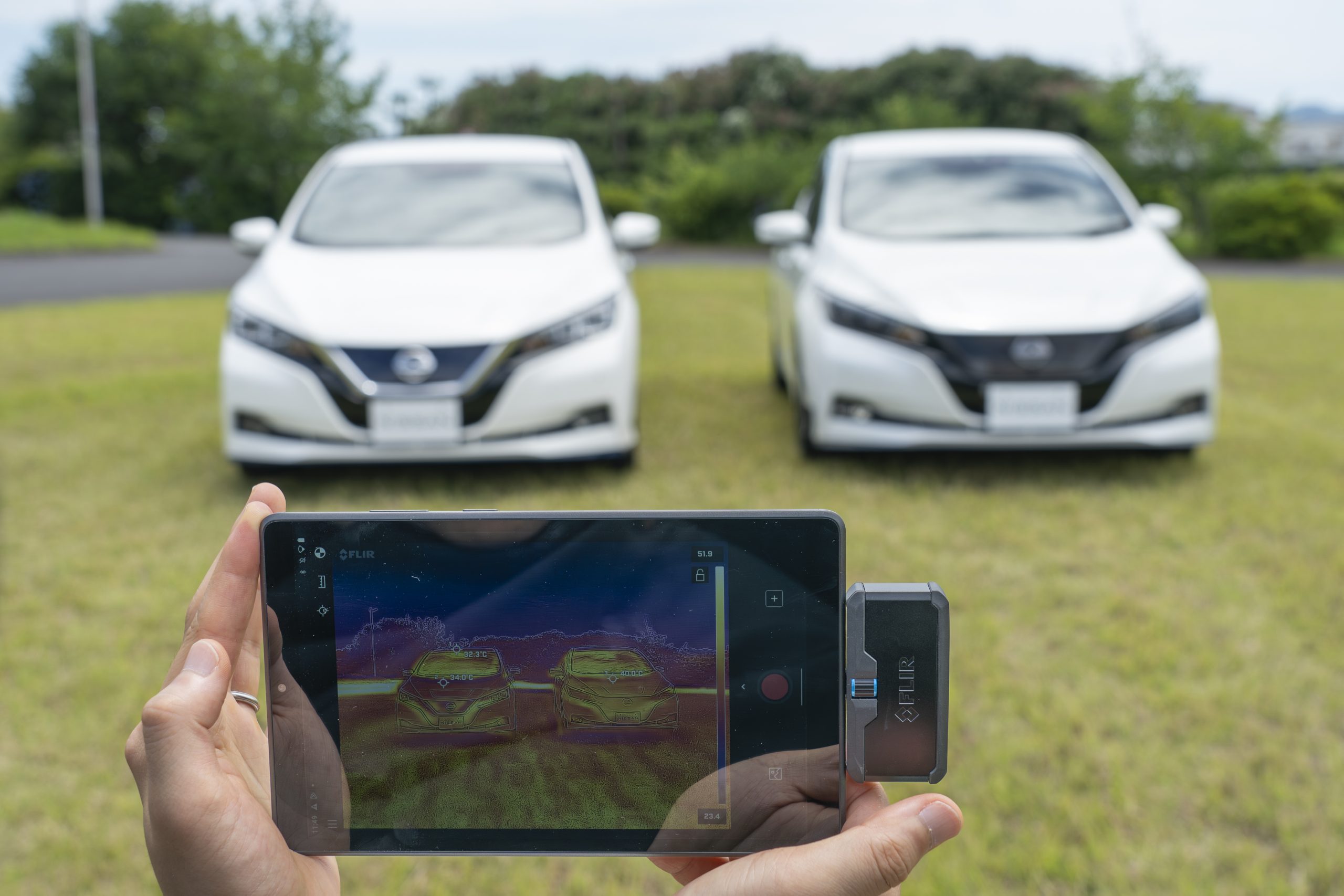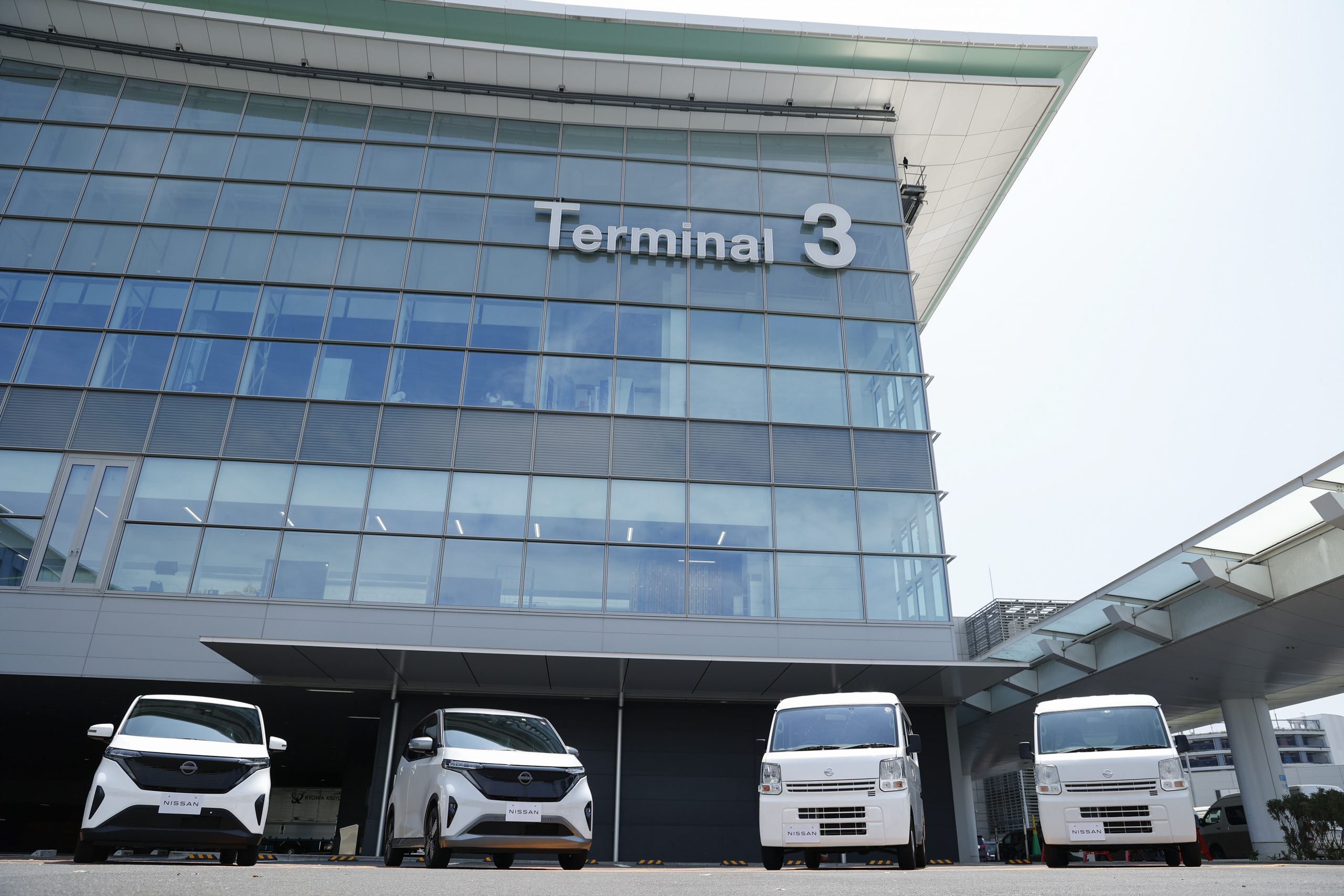Nissan has been trialling an innovative automotive paint aimed at helping lower a vehicle’s ambient cabin temperature in summer and reduce the energy usage of the air-conditioning system.
Developed in partnership with Radi-Cool, a specialist in radiative cooling products, the paint incorporates metamaterial, synthetic composite materials with structures that exhibit properties not usually found in nature.
The project is part of Nissan’s pursuit of differentiated innovations that empower journeys and to help create a cleaner more sustainable society.

In November 2023, Nissan commenced a 12-month feasibility trial at Tokyo International Air Terminal at Haneda. In collaboration with Japan Airport Terminal Co., Ltd., Radi-Cool Japan, and All Nippon Airways (ANA) airport service, Nissan’s cool paint has been applied to a Nissan NV100 service vehicle operated by All Nippon Airways (ANA) airport services.
With its large, open tarmac, Haneda airport provided the perfect environment to conduct real-world evaluation of the paint’s performance in an exposed high-temperature environment.
Impressive results
Although still in testing phase, the results to date have been impressive. Parked side-by-side under the sun, a vehicle treated in Nissan’s cool paint has shown yields of up to a 12-degree Celsius reduction in exterior surface temperatures and up to 5-degree Celsius cooler interior, compared to a vehicle featuring traditional automotive paint.

The paint’s cooling performance is particularly noticeable when a vehicle is parked in the sun for an extended period. A cooler cabin is not only more pleasant to enter, but requires less air-conditioning run-time to cool the cabin to a comfortable temperature.
This helps reduce load to the engine, or in the case of an electric vehicle, draw on the battery. In both powertrains, an improvement in efficiency is expected, as well as occupant comfort.
Leading the development is Dr. Susumu Miura, senior manager and expert at the Advanced Materials and Processing Laboratory, Nissan Research Centre.

He played a leading role in Nissan’s award-winning noise-reducing acoustic material, and has dedicated much of his career at Nissan to exploring ways to make cars quieter, cooler and more efficient.
“My dream is to create cooler cars without consuming energy,” explained Miura. “This is especially important in the EV era, where the load from running air-conditioning in summer can have a sizable impact on the state of charge.”
While the testing and development is ongoing, for Miura and his team, the hope is that it can one day be offered for special orders and in a variety of colours.
Miura sees strong potential, particularly for light commercial vehicle applications such as vans, trucks and ambulances that spend most of the day out driving.




